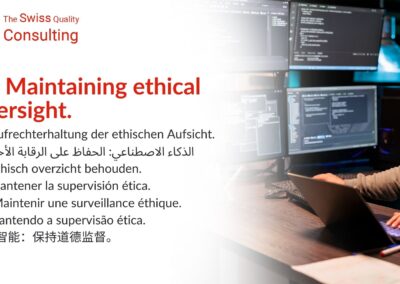Understanding the Ethical Landscape of AR in Travel
Ethical considerations in AR travel experiences are paramount as augmented reality (AR) technology becomes increasingly integrated into the tourism industry. AR has the potential to transform travel experiences by providing immersive and interactive content, enhancing the way tourists explore and engage with destinations. However, as with any emerging technology, there are ethical challenges that developers and stakeholders must address to ensure its responsible use.
One major ethical concern is the accuracy and reliability of the information provided through AR applications. Travelers rely on these applications for guidance and recommendations, making it crucial that the information is up-to-date, accurate, and unbiased. For instance, an AR app providing historical facts about landmarks in Riyadh or Dubai must ensure that the content is thoroughly researched and verified to avoid misinformation. Additionally, developers must be transparent about the sources of their information and any potential biases that may influence the content.
Another significant ethical consideration is privacy. AR applications often require access to users’ location data, camera, and other personal information to function effectively. This raises concerns about how this data is collected, stored, and used. Developers must implement robust data protection measures to safeguard users’ privacy and ensure that their data is not misused or shared without consent. In regions like Saudi Arabia and the UAE, where data privacy laws are becoming more stringent, adhering to these regulations is not only a legal requirement but also an ethical obligation.
Promoting Responsible AR Development and Usage
Ensuring the responsible use of AR technology in travel experiences involves a multi-faceted approach that includes developers, policymakers, and users. Developers play a crucial role in embedding ethical principles into the design and functionality of AR applications. This starts with conducting comprehensive ethical assessments during the development phase to identify potential risks and devise strategies to mitigate them.
One effective strategy is to adopt a user-centric approach, involving potential users, including those with disabilities, in the development process. This ensures that the AR applications are designed to be inclusive and accessible to all travelers. For example, providing audio descriptions for visually impaired users or incorporating sign language support for those with hearing impairments can significantly enhance the travel experience for a broader audience.
Policymakers also have a critical role in regulating the use of AR technology in tourism. Establishing clear guidelines and standards for the ethical use of AR can help ensure that developers adhere to best practices. These regulations should address issues such as data privacy, content accuracy, and accessibility. Collaboration between governments, industry stakeholders, and advocacy groups can foster a regulatory environment that promotes responsible innovation while protecting users’ rights.
Building Trust and Transparency in AR Travel Applications
Building trust with users is essential for the widespread adoption of AR technology in travel. Transparency in how AR applications function and handle user data is a key component of building this trust. Developers should provide clear and concise information about the data they collect, how it is used, and the measures in place to protect it. This includes obtaining explicit user consent before accessing personal information and offering easy-to-understand privacy policies.
Moreover, developers should implement features that allow users to control their data. For instance, providing options to opt-out of data collection or delete personal information can empower users and give them greater control over their privacy. Regular audits and third-party assessments can also help ensure that AR applications comply with privacy standards and maintain high levels of data protection.
The Future of Ethical AR in Tourism
As AR technology continues to evolve, so too will the ethical considerations surrounding its use in travel. Developers must remain vigilant and proactive in addressing emerging ethical challenges to ensure that AR applications enhance travel experiences responsibly and ethically. The focus should be on creating applications that are not only innovative but also respectful of users’ rights and the cultural contexts of the destinations they promote.
Looking ahead, the integration of other advanced technologies such as artificial intelligence (AI) and blockchain can further enhance the ethical use of AR in tourism. AI can help personalize travel experiences while ensuring content accuracy and relevance. Blockchain technology can provide secure and transparent data management solutions, addressing privacy concerns and building user trust.
In conclusion, the responsible development and use of AR technology in travel experiences hinge on addressing the ethical considerations that arise. By prioritizing accuracy, privacy, inclusivity, and transparency, developers can create AR applications that offer enriching and responsible travel experiences. This approach not only benefits travelers but also contributes to the sustainable growth of the tourism industry in regions like Saudi Arabia and the UAE, known for their rich cultural heritage and modern innovations.
The commitment to ethical practices in AR travel experiences is a shared responsibility that requires collaboration among developers, policymakers, and users. Together, they can ensure that AR technology enhances travel in a way that is both innovative and ethically sound, paving the way for a more inclusive and enjoyable future for all travelers.
—
#ARTravelEthics #EthicalTech #AugmentedReality #TravelInnovation #SaudiArabia #UAE #Riyadh #Dubai #ArtificialIntelligence #Blockchain #TheMetaverse #ExecutiveCoaching #GenerativeAI #ModernTechnology #BusinessSuccess #LeadershipSkills #ProjectManagement























